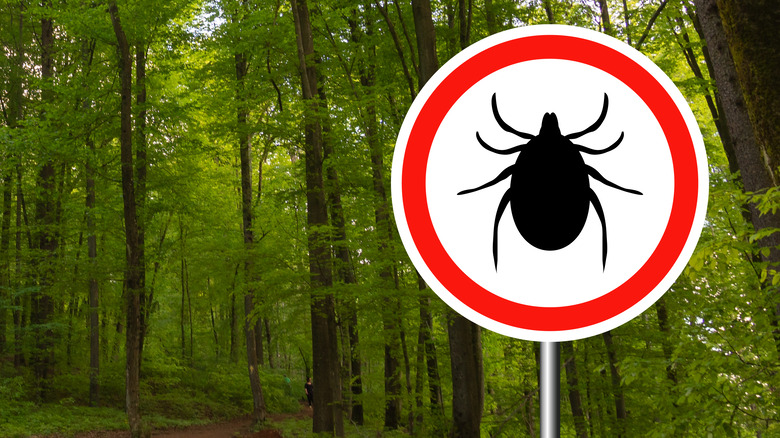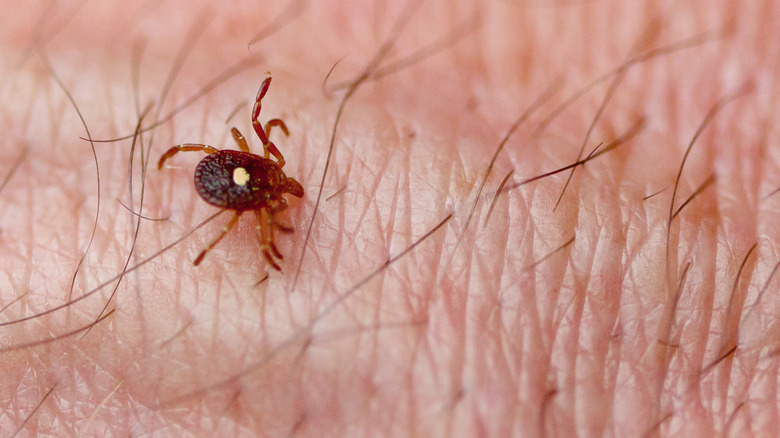Getting A Tick Bite Could Make You Allergic To This
While Lyme disease is commonly known to be contracted by tick bites, there are other health-related conditions that these tiny bugs are responsible for. Ticks can be found nearly everywhere — in as many as 48 of the 50 states, including Alaska (via Everyday Health). It may be due to this expansion of tick territory that Lyme disease cases have almost tripled since the 1990s. Richard Ostfeld, senior scientist at the Cary Institute of Ecosystem Studies in New York, tells Everyday Health, "Somewhere between 20% and 40% of blacklegged ticks carry Lyme."
While Lyme disease is the most common tick-borne illness in the United States, it is not the only one out there (per Minnesota Department of Health). There are many different types of tick species, and each species can transmit a different illness. According to experts at Healthgrades, if you get bit by the Lone Star tick, you could experience a life-threatening allergic reaction.
The food allergy to look for after being bit by the Lone Star tick
According to the American College of Allergy, Asthma, and Immunology (ACAAI), being bit by the Lone Star tick puts a person at risk for an allergic reaction to red meats, such as beef, lamb, pork, and goat. Healthgrades reports that you can also develop a reaction to products containing ingredients derived from mammals, like soaps and medications.
This allergy occurs because the tick bite transmits a sugar molecule called alpha-gal to the bloodstream, resulting in alpha-gal syndrome, or, an allergy to red (mammal) meat ranging from a mild to life-threatening reaction. Symptoms can include hives, vomiting, difficulty breathing, indigestion, and weak pulse (via ACAAI).
Unless you specifically remember being bit by a Lone Star tick — a black tick with a white spot on its body — diagnosing alpha-gal can be difficult. Healthgrades reports that the syndrome may be underdiagnosed in the United States, and that those with alpha-gal syndrome might react to certain meats but not to others. If you find yourself with symptoms resembling this allergy, the Mayo Clinic advises to avoid food triggers and to make an appointment with your doctor.


